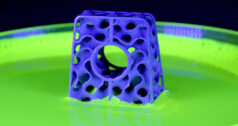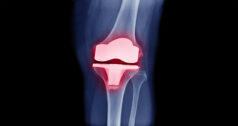
By combining an advisory board of musculoskeletal product manufacturers with the clinical and bioengineering faculty at UC San Francisco and University of Toledo, The Center for Disruptive Musculoskeletal Innovations (CDMI) seeks to jointly define issues that hinder innovation and ideal patient outcomes, then use university resources to identify potential solutions. These solutions will be pursued with a common funding pool that supports graduate student research.
The UCSF Department of Orthopaedic Surgery will house the center. On July 25-26, CDMI partners will convene to refine its vision, determine research direction and select first funded projects. As noted by Scott Maier, Senior Public Information Representative for UCSF, “The new center is intended to help reverse [a trend of decline in venture funding and FDA submissions] by focusing on industry needs, or “technology pull,” rather than the academic perception of those needs, “technology push.” It also aims to align the pre-competitive interests of industry members by identifying new market opportunities and focused technologies that could reduce or eliminate high patient-care costs.”
CDMI will “fund proposals from various disciplines, including material science, biomedical engineering, nanotechnology, biosensors, implant design, information technology, health care economics and advanced imaging.” Ideas for potential research proposal identified by CDMI include:
- New materials for orthopaedics – reduced wear, alloys without toxicity; biodegradable polymers
- Minimally invasive surgery (MIS) techniques – visualization, minimization
- Products that generate clinical and economic value
- Infection risk reduction
- Translational disruptive projects – such as ways to regenerate tissues
- Clarification of reimbursement pathways
- Big data – registries that include their current product lines – need for reimbursement presentations
- Voice of payors – how to protect existing product lines – maintain reimbursement
- How to better identify the ‘right’ patient for a particular procedure
- Ways to measure patient improvement – pre-/post-op changes that reflect treatment quality
- Robotic surgery to improve treatment precision/repeatability
- Ways to reduce implant heating during MRI imaging
- Systemic anabolic agents that augment treatments – e.g. spine fusion
- Priority access to prepublication data. Software for data analysis?
- How to make community surgeons perform as well as experts when using company devices?
- Leveling the playing field regarding payors and their data.
- Would like a compendium of technology breakthroughs
- Intelligent biomedical devices
CDMI member companies include Apex Spine, DePuy Spine, Eli Lilly, Fore, K2M, Medtronic, Orthofix, Spinal Balance, Spine Soft Fusion and Turning Point. At the center’s launch, companies that will attend as observers include Alphatec Spine, BioTime, Cellulosic Solutions, General Electric, Johnson & Johnson, Merck, Respiratory Products, Stryker and Syntorr.
Sources: Scott Maier, UCSF.edu; The Center for Disruptive Musculoskeletal Innovations




